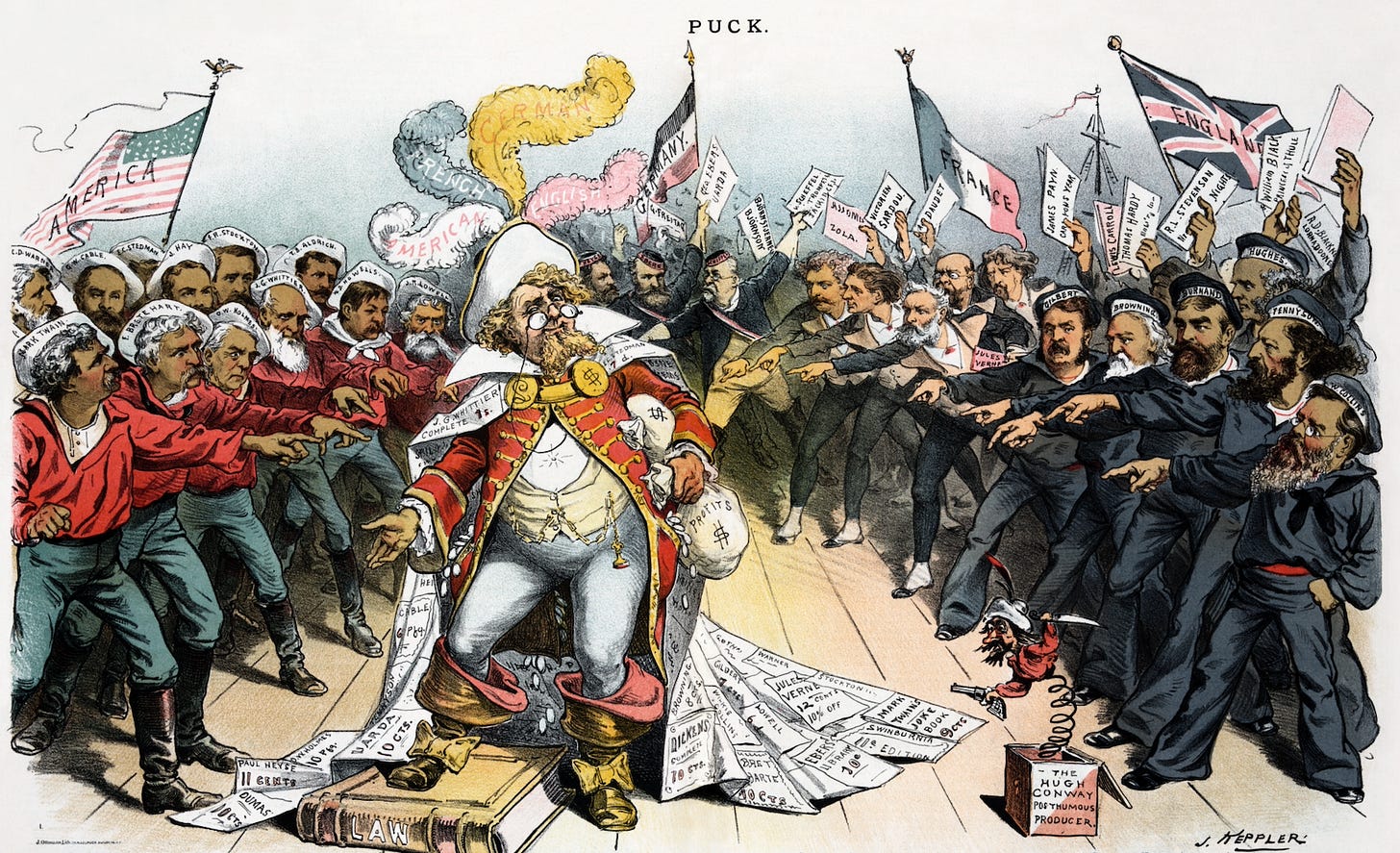Hurrah for Gilbert & Sullivan: How Two 19th Century English Social Critics Can Still Teach Us Today
The British duo of William S. Gilbert and Arthur Sullivan, the incomparable composers who together produced a veritable catalogue of operettas in Victorian England, were two early victims of the backlash against Western culture. Gilbert & Sullivan suffered from the sin of not just being dead, white, Englishmen, but, even worse, from being perceived as purveyors to the London upper class. Perhaps this is best exemplified in the film, Chariots of Fire, where the duo’s target audience was portrayed as Oxford toffs dressed in white tie and tails. Gilbert & Sullivan conclusively earned their place in the pantheon of Entartete Kunst when, in 2015, the New York Gilbert & Sullivan Players cancelled its production of the Mikado on the basis that it was culturally insensitive – notwithstanding the fact that, as one critic put it, the operetta mocked British society rather than Japanese.
The irony of the pair’s cancellation is that Gilbert & Sullivan had a far keener eye for the inequities of the British ruling class than most of today’s social critics have for their. Moreover, they not only shone a piercing spotlight on those inequities, but also did so with a subversive sense of humor and memorable music.
While one suspects that most people today possess little knowledge about these remarkable artists, it was little more than a generation ago that arguably the duo’s best-known work, The Pirates of Penzance, was still sufficiently popular to be performed on Broadway and made into a 1983 film starring Kevin Kline, Linda Ronstadt and Angela Lansbury. It is our loss that both the operetta and its composers are largely forgotten because, even though Gilbert & Sullivan have been dead for more than a century, their works continue to provide a useful commentary on our privileged classes today, beginning with perhaps the most familiar song from Pirates, namely I am the Very Model of a Modern Major General. The song begins with the general’s character regaling audiences with his knowledge on various subjects:
I can tell undoubted Raphaels from Gerard Dows and Zoffanies,
I know the croaking chorus from The Frogs of Aristophanes!
Then I can hum a fugue of which I've heard the music's din afore,
And whistle all the airs from that infernal nonsense Pinafore.
Then I can write a washing bill in Babylonic cuneiform,
And tell you ev'ry detail of Caractacus's uniform:
In short, in matters vegetable, animal, and mineral,
I am the very model of a modern Major-General.
However, at the end of the song, the general admits that while he knows much about “matters vegetable, animal, and mineral,” he doesn’t even have a “smattering of elemental strategy:”
When I have learnt what progress has been made in modern gunnery,
When I know more of tactics than a novice in a nunnery –
In short, when I've a smattering of elemental strategy –
You'll say a better Major-General has never sat a gee.
One might argue that it is reaching for low-hanging fruit to juxtapose a song about a general who boasts of his expertise in literature, botany, music, mathematics, geology and philosophy, while conceding his utter ignorance of more pertinent topics topics such as gunnery, tactics, or strategy with the public utterances of our military leaders today. Indeed, some conservative commentators, chief among them Mark Steyn, have already christened the Chairman of the Joint Chiefs of Staff as “General Thoroughly Modern Milley.”
But it is hard not to see the similarities when one constantly reads about the non-military concerns that appear to consume these leaders – “toxic whiteness,” maternity flight suits for pregnant flyers, the elimination from the Air Force Academy’s vocabulary of the words “mother” and “father” – especially when coupled with the ongoing incompetence in American military matters, such as the disastrous Afghanistan withdrawal or the failure to keep up with Chinese military technology. It seems as if the pertinent question is not what Gilbert & Sullivan might have done with such material, but whether even artists of such genius could have conjured anything quite so absurd.
The social commentary of another song from Pirates, the Song of the Pirate King is equally prescient. The song’s rousing chorus. “Hurrah for the Pirate King” obscures a sophisticated analysis of the British financial class. Although ostensibly a song justifying a decision to engage in a life of piracy, the thrust of the lyrics is to skewer the “respectable” business leaders of the composers’ day. Eschewing the “cheating world” where “pirates all are well-to-do,” the Pirate King prefers to operate honestly under his “great black flag” rather than to “play a sanctimonious part with a pirate head and a pirate heart.” Admitting that he “sinks a few more ships it's true than a well-bred monarch ought to do,” the Pirate King rationalizes his conduct by observing that “many a king on a first-class throne, if he wants to call his crown his own, must manage somehow to get through more dirty work than ever I do.” If the organizers of Occupy Wall Street had any wit, they would have appropriated this song as their anthem.
Perhaps the most devastating broadside against today’s political class comes from an aria, Sir Joseph Porter’s Song, contained in another Gilbert & Sullivan work, H.M.S. Pinafore. In that song, Sir Joseph explains how he became ruler of the Queen’s Navy, chronicling how an anonymous mediocrity rose step-by-step through a bureaucracy to be given a position of power and influence. Starting as an office boy, he polished so carefully all the handles on the firm’s “big front door” that he was promoted to junior clerk. In that position he copied all the letters with a big round hand, so carefully that he earned promotion to articled clerk, or apprentice. He thereafter passed his examination “at the Institute” to become a junior partner (his junior partnership being the “only ship” he ever saw) where he became rich. As a result, he was given a safe seat in Parliament, where, as he explained:
“I always voted at my party’s call and I never thought of thinking for myself at all. I thought so little they rewarded me by making me the Ruler of the Queen’s Navee.”
This song captures with brilliant irony the career path of many government Pooh-Bahs, “born sneering” but who “struggle hard to overcome this defect,” and it explains more succinctly and more clearly than could the most sophisticated political scientist how members of the bureaucratic class can rise to positions of influence not due to any record of accomplishment and despite one of failure after failure. Indeed, Sir Joseph’s final advice, “stick close to your desk and never go to sea, and you all may be rulers of the Queen’s Navee” appears to have been heeded by more than half of our nation’s recent Cabinet officers.
If they have not already, Gilbert & Sullivan will become the exclusive province of prep school boys, or even a subset thereof. That is a shame, because they remind us that, as this site suggests, history repeats itself. Or, as inheritors of Gilbert & Sullivan’s legacy more recently put it, mixing music with social commentary, the world is “the same as it ever was.”





